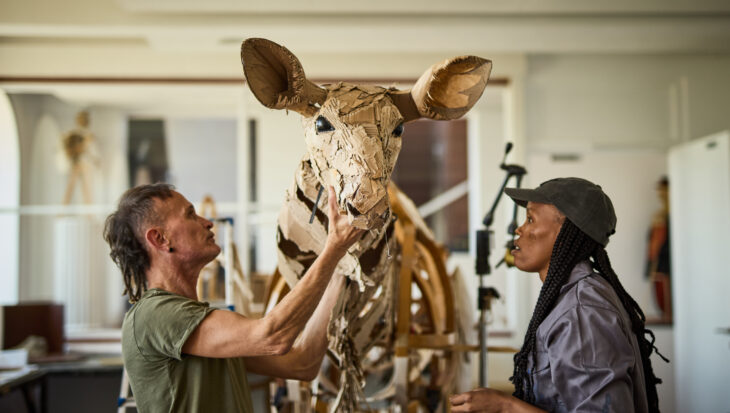‘The Herds’ will be arriving in London this Friday!
Have you heard? A breathtaking arts initiative, ‘The Herds’ will be arriving in London this Friday.
Posted 27 Jun 2025

Posted on the 29th January 2014
Last night’s (28 January) BBC report from Oxford University’s animal laboratory presented the public with a dishonest, overwhelmingly positive picture of animal research. The BBC now has a pressing duty to show the other side – the suffering of the animals and the faulty scientific premise that lies at the heart of animal use.
A monkey was shown performing a task that involved being given a food reward for touching a picture. What was not mentioned is that primates are often deprived of food or water in order to condition them to perform such tasks. Similarly, reference was made to ‘small brain lesions’ given to the monkeys, but brain-damaged monkeys can suffer seizures and be left too weak to feed themselves. Crucially, fundamental differences between species mean that such research is highly unlikely to benefit humans. The report discussed research on macaques, but our brains are 16 times larger than theirs, and the interviewee’s own research highlights key differences between the two species’ brains. Unsurprisingly, research on primates – often highly invasive and traumatic – has repeatedly failed to advance the treatment of neurological conditions. In 2006, for instance, neurturin gene treatment caused a dramatic improvement in the parkinsonian symptoms of brain-poisoned monkeys, but the therapy proved useless in human clinical trials.
Viewers were also shown genetically modified (GM) mice, but no mention was made of the suffering endured by these animals. Even the breeding of GM mice involves invasive procedures such as castration and major surgery, and hundreds of mice are killed (often by gassing or neck breaking) to create just one ‘founder’ mouse. Although mice can be genetically engineered to exhibit some of the symptoms of human illnesses, they do not have the underlying disease. Finding ways to treat the animals’ artificially induced symptoms does not translate into advances in human medicine. Unsurprisingly, numerous drugs that have improved the symptoms of GM mice used in Alzheimer’s research (such as tarenflurbil and tramiprosate) have failed in human trials.
The BBC’s report coincides with the pro-animal research lobby’s current major public relations push, which focuses on what it calls ‘openness’. Yet this declared commitment to transparency is seriously undermined by the stubborn climate of secrecy that continues to surround vivisection. At the heart of the problem is the notorious secrecy clause in the Animals (Scientific Procedures) Act that is used to prevent the release of the most basic information about animal experiments. In order to avoid being perceived as a vehicle for pro-animal research propaganda, the BBC urgently needs to ensure that the substantial scientific and ethical problems related to animal research are given appropriate airtime.
Please contact the BBC on 03700 100 222 and politely urge them to give appropriate airtime to the scientific and ethical problems with animal research.
Have you heard? A breathtaking arts initiative, ‘The Herds’ will be arriving in London this Friday.
Posted 27 Jun 2025

As the greyhound racing industry releases its annual data on the number of dogs’ deaths, a raft of well-known names - alongside their canine friends - has called upon the Government to end greyhound racing....
Posted 26 Jun 2025
